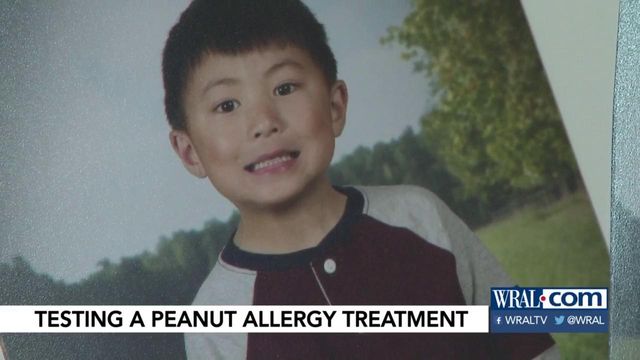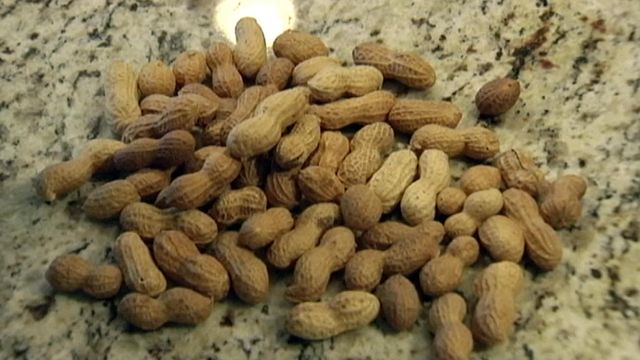UNC doctor working on peanut allergy treatment to help kids like his son
UNC doctor Edwin Kim is working on a treatment for children with peanut allergies that could lead to them living a more normal life.
Posted — Updated"It was the first time he had had peanut butter on a cracker," Kim said.
He quickly realized his 9-month-old son was allergic. It was a reaction he had seen many times working as a doctor specializing in food allergies.
"Almost instantaneously, he got this redness around his mouth," Kim said.
He joked that he now advises parents never to introduce peanuts to children on Monday mornings.
Dr. Kim has been studying food allergies since med school when he was invited to work on a team that was looking into treatments. He's now the medical director of the University of North Carolina Allergy and Immunology Clinic in Chapel Hill.
"When I was a kid, nobody had food allergies, no one had peanut allergies," he said.
It's now becoming more common. Research shows that peanut allergies in children have increased more than 20% since 2010. Although the overall population is small – only about 2.5% of children in the United States suffer from peanut allergies – the allergy can be deadly.
Kim now knows how scary that can be for parents who worry about allergic reactions daily, and that's driving his research.
He is currently working on a peanut allergy treatment called Sublingual Immunotherapy or SLIT. It involves putting a trace amount of liquid with peanut protein under the tongue.
"The idea here is going to be very similar to what we do for allergy shots for pollen allergy," Kim said. "What we are trying to do here is expose the immune system to small amounts of what they are allergic to, which in this case is peanut."
The most recent clinical trial included following 48 patients for 5 years. Nearly 70% of the patients were able to eat one or two peanut kernels without a reaction. This encouraged researchers who are hoping this could be a way for children to live more normal lives.
"They want to be like every other kid at school. They don't want to sit at a separate, peanut-free table. They want to go out trick-or-treating with their friends. They want to go to dinner and sleepovers," Kim said.
He's seeing this firsthand with his son who is now in kindergarten.
"Ideally we can get it up to a level where kids with peanut allergy can get exposed to small amounts of it and not have that scary allergic reaction," he said.
• Credits
Copyright 2024 by Capitol Broadcasting Company. All rights reserved. This material may not be published, broadcast, rewritten or redistributed.






